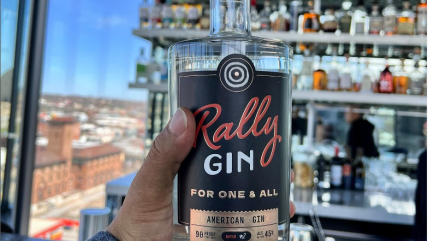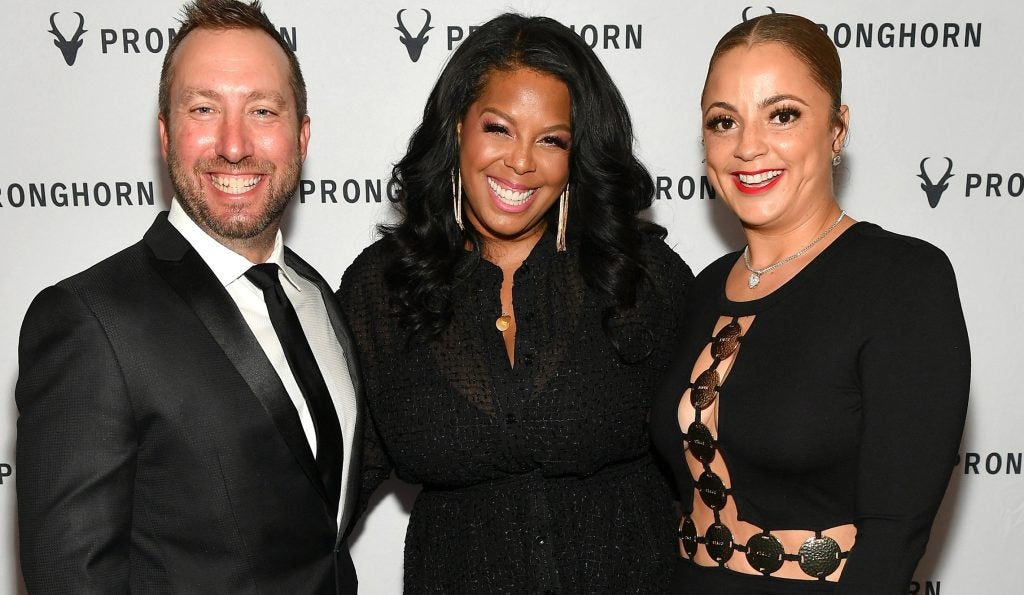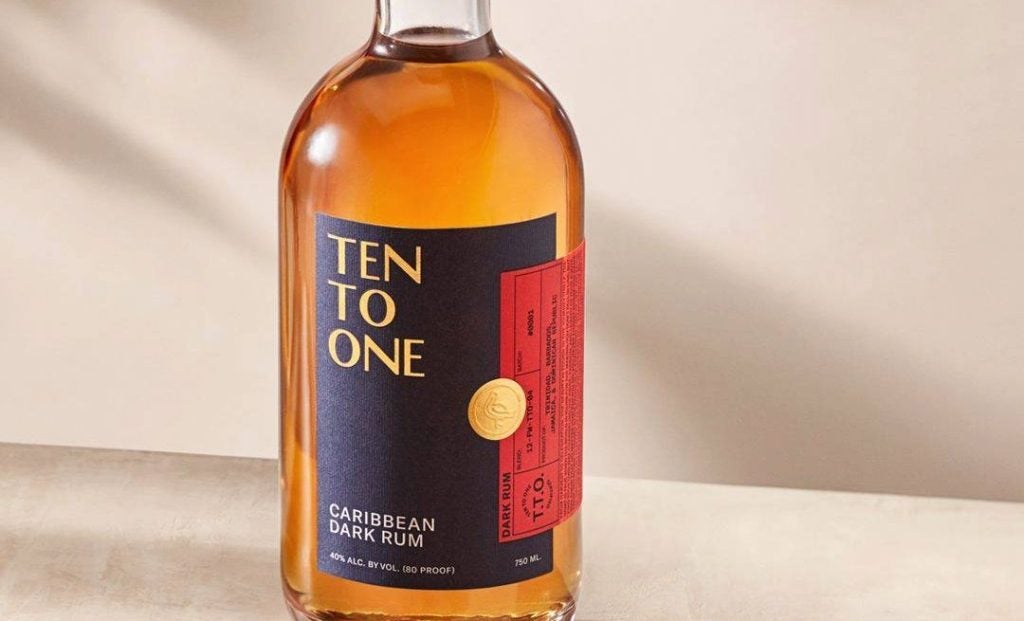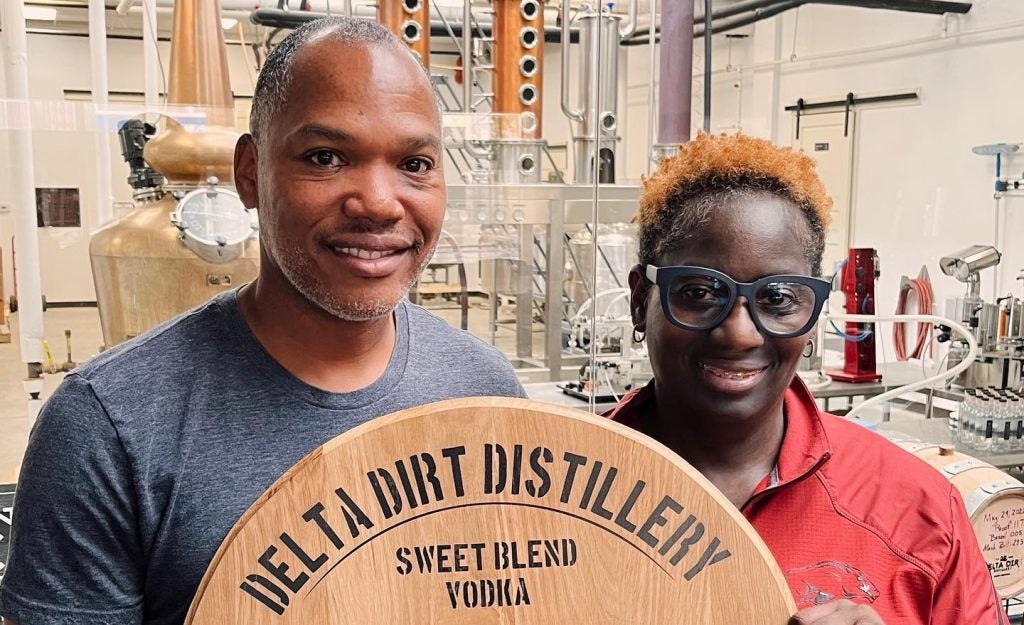
Pronghorn, a US investment firm, was set up in 2021 to fund and support Black-owned entrepreneurs trying to grow spirits brands.
The Georgia-based company, which counts the world’s largest distiller, Diageo, as its anchor investor, says the US spirits industry “has severely underrepresented its prominent consumer audience”. It has a target of investing in 57 brands in a decade and has 23 active investments.
Just Drinks sat down portfolio director and ex-Diageo executive Connor McKenna to discuss the brands Pronghorn has backed, what types of entrepreneurs and businesses it looks to finance and why improving diversity in spirits is a must.
Just Drinks: How would you assess Pronghorn’s performance, its work and impact so far?
Connor McKenna: Overall, Pronghorn is seeking to be an effective template for how you can diversify any industry, starting with the spirits universe and starting with the Black community.
We have a two-pronged approach. On one side, our team focuses on trying to spread the entrepreneurial pipeline. From an impact standpoint, our ten-year goal is to invest in 57 brands. That’s providing founders with access to capital, network and know-how to try and be successful in the industry. We’ve made 23 of those investments.
On the employment side of things, we’re looking to make sure the industry reflects the consumer base it serves. When Pronghorn was founded, while Black Americans were 12% of the consumer base of spirits, the community only represented 8% of the workforce and 2% of the executives. There is a clear gap in terms of that representation. The goal over the ten-year horizon is to place 1,800 individuals into this industry and do so in a way that’s sustainable. It’s making sure the mentorship opportunities and networking opportunities exist so that talent is not just placed in a role but is successful and thrives and stays in the industry.

US Tariffs are shifting - will you react or anticipate?
Don’t let policy changes catch you off guard. Stay proactive with real-time data and expert analysis.
By GlobalDataJust Drinks: To go back on the 1,800 roles and how does that work happen? What’s the process there?
McKenna: We are dedicated towards diversifying the industry by cultivating the next generation of entrepreneurs, executive leaders and founders. One, it’s partnering with the major hirers across the three tiers – so the Diageos, the Southerns, the retailers of the world. We are a mission-driven organization. We are very heart-led but we’re also fact-based. This is not approaching this whole idea saying ‘hey, we want to do some good in the world.’ That’s obviously the core of our mission but we’re doing so in a very scientific way. That 1,800 number is not pulled out of thin air but is the exact amount of roles that’s needed to right-size representation in the industry to ensure it reflects the consumer base it serves.

The industry is heavily moated, it’s tightly regulated and it can be challenging and intimidating if you don’t know how it works. That side of the organisation is more about right-sizing the representation but, both arms combined, we’re looking to build a scalable, repeatable template for effective diversification [and] we know it’s a marathon. It’s why we picked the name Pronghorn. While it’s just behind the cheetah in terms of the fastest land mammals in the world, in a marathon it’ll beat a cheetah every single time.
Just Drinks: As Pronghorn assesses the types of businesses you might invest in, what attributes do they have to have? What level of sales? What presence in the market?
McKenna: We invest in terms of our capital and our full ecosystem of support of helping brands on that journey from zero to 25,000 nine-litre cases. We’ve invested and partnered with brands along the gamut of that scale of volume.
What a 50-case brand looks like is obviously very different than a 10,000-case brand but all the partnerships that we look to build have to have three foundational elements. Number one: the brand story. Is this something we think is going to resonate in the market today with consumers, not just ‘hey, the hot new trend’ but is a compelling purchase for consumers? Are you able to emotionally build a connection, not just get that first order but get that second, third, fourth purchase?
Two, is there a founder in place that’s ready to tell that story 10,000 times? Sometimes founders enter this world thinking it’s like a tech or software. One of the things I love about this industry is that it is block by block, account by account. We look for founders who are ready for that journey but also know what they’re getting ahead. You have to be out there in the market.
And then, three, you have to have some kind of attractive gross margins. It’s an expensive business and, without a healthy, gross margin, you can’t make the requisite investments in A&P or SG&A that are necessary to compete.
We think it’s really important that you drive your distribution growth behind velocity growth. This isn’t just a case of entering as many markets as you possibly can because then you’re going to be burning cash and it’s incredibly difficult to measure. What are you learning ultimately? Are you learning what accounts you’re successful in?
You must be driving your distribution growth behind velocity growth and to achieve that you need shoppers to achieve that consumer engagement and to achieve that you need effective capital management.
Just Drinks: What’s the typical dollar size of the investments Pronghorn makes? What kind of equity stake do you acquire?
McKenna: We do not publicly announce that information but I’d say, you know, we are set to write cheques anywhere on that journey from zero to 25,000 nine-litre cases. In venture-capital terms, that’s anywhere from Angel up to Series A where we typically invest.
Just Drinks: What’s Diageo’s role as the anchor investor?
McKenna: It’s important to know that Pronghorn is a separate, standalone company. Pronghorn is not a path to acquisition. We are not a strategic investor on their behalf, so it’s not like we get access to the trucks or sales forces. I think for the most part as our anchor investor they helped us as far as an organisation actually get us off the ground and have given us freedom to execute and build.
Just Drinks: Do any of Diageo executives take part in any mentoring or any other projects?
McKenna: From a mentorship side of things, certainly. Going back to the talent-building side of our business, we have a number of mentors in this industry.

Just Drinks: To clarify: Pronghorn has no plans to acquire any of its investee companies outright at any stage?
McKenna: No, we are not looking for control or looking to become a brand house ourselves. It’s core to our mission that we’re far more than capital. We try to build a platform of value-added services, centred around capital, network and knowhow. We want these brands to sit with the founders and whether their goal is ultimate acquisition. a liquidity event or generational wealth in business, we are building our value platforms and supporting each founder’s individual journey to get to where they want it to be.
Just Drinks: There’s some kind of return Pronghorn gets because that then funds your future investments?
McKenna: Like any venture fund, we invest to acquire minority equity stakes and then are ultimately looking to exit those positions so that we can prove that this is a sustainable and enduring diversification venture.
Just Drinks: In your recent discussions with entrepreneurs, are they finding it difficult to access funding, given the general macroeconomic environment?
McKenna: We ought to be clear: we have not slowed down and we are not withholding cheques. Certainly, there’s macroeconomic trends in the venture capital space but that goes beyond spirits. 2023 in spirits overall was a difficult year for a lot of brands and there were a lot of good macroeconomic reasons for that.
There’s a lot of companies out there trying to avoid the down rounds and so it does highlight at its core the continued importance of sustainably building your brand and not investing crazily ahead of growth and crossing fingers that it comes. We continue to be very active in the market and, despite those challenges, the brands that are able to hit those three key markers are going to continue to be successful.
Just Drinks: What are the main obstacles that Black entrepreneurs face as they’re looking to try to build a brand in spirits?
McKenna: Think about the journey an entrepreneur goes through if they wanted to start a brand. You have federal and state permitting, identifying supply chain partners, negotiating distribution, hitting the street and not only knowing which accounts to hit but how they buy, incentivising your key partners… on and on. There’s a million trap doors we see founders fall into simply because what’s considered common knowledge for many industry veterans is not so obvious for the uninitiated.
I think most in the industry would agree this is a relationship-driven world and, without that ingrained network and know-how, it’s extra difficult to get placed on-shelf, let alone win in a scalable/sustainable way once you’re there.
And currently, the industry, from entry level to executive employees, does not reflect the consumer base it serves, leaving individuals from those underrepresented communities to struggle to find that network and mentorship that is crucial to avoid early mistakes and build something with potential.

For us, it’s about overall contributing to a much more inclusive and economically empowered society and industry that’s just going to create a much more robust future for bev alc.
We firmly believe in the power of diversification in supporting the longevity of any industry. Oftentimes, we hear it’s seen as like trying to fit another chair in an already crowded table. We see it as actually building a bigger table and attracting more consumers and creating new meaningful occasions that spirits can authentically play a role in.
It’s clear now that, in terms of both employment and ownership, the spirits industry does not reflect the consumer base it serves. That homogenous executive or entrepreneurial pool can lead to stagnant innovation and it can lead to lack of consumer choice. As that consumer base continues to evolve, it’s going to be great business for the overall industry to ensure we are continuing to meet consumers where they are and empowering founders to provide authentic brands and amazing liquid to meet those ever-evolving occasions and continue to play a meaningful role in their lives.
Just Drinks: Are those obstacles becoming less difficult to surmount or fewer in number? Are Black entrepreneurs finding more success, getting more access to funding?
McKenna: I’d say there’s still a lot of work to be done. Pronghorn was conceived in 2020. I think in America, obviously 2020 was an important year for a lot of reasons, not just Covid but the racial awakening that our country. There’s a lot of work to be done. We’ve already ourselves learned a ton about how we can evolve and execute our strategy in more effective ways.
Just Drinks: Could you call out a couple of those learnings?
McKenna: I’ll say this: the first couple of years has reinforced the importance of partnering with founders with a really strong vision and the readiness and willingness to grow the brand and that block-by-block mentality. It’s solidified our understanding that indeed we want to be finding founders who are ready for that journey and building out a suite of platforms that support them beyond the capital. These are learnings not quite acted upon yet but understanding how important it is to make sure that we are connecting them with the right partners, whether that’s feet on the street, whether that’s non-dilutive financing options and continuing to make sure that we build out that suite that’s going to support them.
Just Drinks: Looking at the spirits sector, how do you weigh up where to make your next investment?
McKenna: The foundational elements [must] exist no matter what: a compelling brand story; a founder ready to tell that story; and competitive growth margins – or at least a readily available path to competitive gross margins.
From there, we can double click: are you playing in the right sandbox? Everyone looks at a lot of the same data and sees where the growth in the industry is coming from, whether that’s agave-based products and whisk(e)y-based products. If that is what future consumers and the appetite for eventual exit partners is looking for, it does make sense to try and focus there but we are looking at a much more holistic picture.

We don’t have a specific target to say ‘of our 57, 30 of them have to be Tequilas.’ We’re not going to invest in a Tequila brand just because it’s agave, because the price point is hot and the market is hot. We’ve placed some investments in categories, such as rum, which I think from an acquisition headline standpoint has been making some waves recently but is something we also continue to be really bullish on with our investment in Ten to One rum.
Not a lot of people are excited to be talking about vodka investments but we’ve made an investment in a brand called Delta Dirt. It’s a distillery based in Arkansas making vodka that is not just terrific liquid but an example of a brand story that is just amazing, where the founder’s ancestor was able to purchase their farm through sharecropping and, as that farm’s evolved and has survived through multiple economic challenges. to this point today where they’re growing sweet potatoes, distilling and making vodka. Maybe that category, that price point wouldn’t jump off the page from any investor standpoint but the founder and the brand story and the opportunity ahead was very, very clear to us.
Just Drinks: On which cohort could Pronghorn’s next diversity focus?
McKenna: We’re hoping this overall mission we’re building will be the template for how you can effectively diversify in the industry. Whether that’s expanding our focus beyond spirits or the next group of underrepresented founders, certainly we are hoping what we’re building here has to be the start of something that you can grow and expand. I don’t know exactly what that looks like, whether it’s another cohort of underrepresented founders within the spirits industry or focusing on other industries, but that certainly is built into the long-term strategy in Pronghorn. We hope to be that agent of change that can prove that you can do well by doing good and you can do it in a sustainable way.



